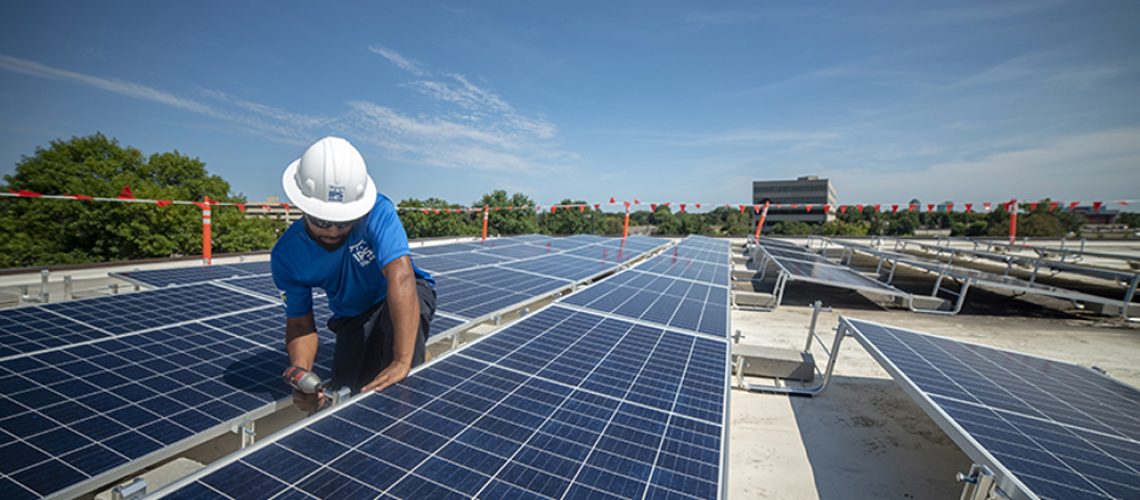EnergySage and NABCEP release results of 2021 solar installer survey, which shed light on the impact of supply chain and policy challenges.
EnergySage and NABCEP released the results of the seventh annual Solar Installer Survey. Over 500 residential and commercial installers across the country participated in this year’s survey, and it captures key observations about the current state of the US solar industry, offering the perspective of local, regional, and national solar installers. Some of the key challenges noted include supply chain constraints, a lack of trained workers, and uncertainty around the investment tax credit (ITC).
Three out of five of installers reported that supply chain constraints harmed their businesses in 2021. These constraints manifested themselves primarily as freight delays, decreasing the availability of solar panels and batteries in particular: 57% of installers reported difficulties in purchasing and receiving solar equipment necessary for completing projects.
Lack of trained labor as the largest barrier to growth cropped up for the first time in the seven years of the survey. According to the Solar Energy Industries Association (SEIA), the number of jobs in the solar industry has grown from 93,000 to 230,000 in sales, distribution, construction and development, manufacturing, and O&M. The need for workers is increasing in response to the Biden administrations climate goals and increase in consumer demand for solar. SEIA, NABCEP, and GRID Alternatives are just a few of the organizations offering training programs to expand and diversify the solar workforce.
A further impediment to growth is the uncertainty surrounding the ITC. Half of survey respondents say they will hire more workers if Congress extends the ITC for 10 years. According to the Wood Mackenzie/SEIE US Solar Market Insight Q4 2021 report, extending the ITC would increase capacity installations over the next decade by 66%. Survey respondents said a complete phase out of the ITC would lead most installers to scale back their businesses or business-related spending. The best scenario appears to be the direct-pay option for the ITC (an upfront cash rebate as opposed to a tax credit post installation), with 70% of installers anticipating that direct-pay would result in greater consumer demand for solar.
“2021 saw supply chain disruptions, a global pandemic, and more regulatory headwinds. These challenges remind me of how very proud I am to be part of an industry that continues to overcome such hurdles in an effort to combat climate change while helping millions of Americans save money with renewable energy,” said Vikram Aggarwal, CEO and founder of EnergySage.
EnergySage fielded this survey from January through March 2021. In addition to EnergySage, NABCEP, the leading certification organization for renewable energy professionals, as well as several large manufacturers, distributors, publications (including pv magazine), and industry associations sent the survey to their own installer networks. In total, 501 solar installers participated across 43 states and two territories: Washington DC and Puerto Rico.
“It cannot be overstated how important this information is to the solar industry and the future of the renewable energy sector,” said Shawn O’Brien, President & CEO of NABCEP. “We feel that our organization can play a significant role in meeting the nearly one million solar jobs needed to meet President Biden’s clean energy target by 2035. This report contains crucial data that credentialing bodies like ourselves can use to bolster our current programs and continue our devotion to grow the solar workforce.”
The latest report can be downloaded for free here. Installers who download this survey will be invited to participate and have their voice heard in the 2022 edition.



